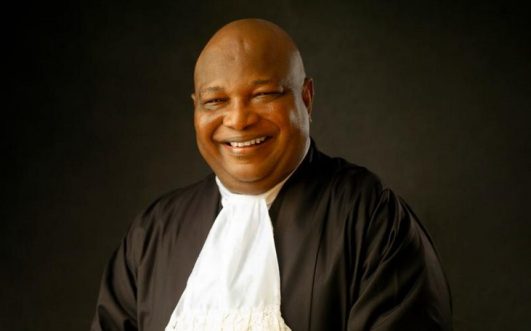The Inspector General of Police (IGP) is the highest-ranking officer in the Nigeria Police Force, vested with the authority to maintain law and order. However, the legality of the IGP’s continued service is governed by two primary statutes: the 1999 Constitution of Nigeria (as amended) and the Police Act 2020.
The 1999 Constitution of the Federal Republic of Nigeria, as amended in Section 215(1)(a) states:
“There shall be an Inspector-General of Police who, subject to section 216(2) of this Constitution, shall be appointed by the President on the advice of the Nigeria Police Council from among serving members of the Nigeria Police Force.”
However, the Constitution does not explicitly stipulate the tenure or retirement age for the IGP.

This silence has historically allowed IGPs to remain in office indefinitely, creating a culture of impunity and undermining institutional accountability.
Section 7(6) of the Police Act 2020 expressly states:
- Lagos to host E1 boat race fiesta as Sanwo-Olu meets former Chelsea striker, Didier Drogba
- Much Huffing without puffing, who will get Seyi Makinde’s tourism template off the doldrums? by Ola Emmanuel
- Alleged right breach: Your suit is incompetent, Tinubu, Fagbemi tell lawyer
- Edo election tribunal: INEC tenders additional BVAS machines as PDP closes case
- Edo election tribunal: Our case against APC is documentary based, PDP chair
“The person appointed to the office of the Inspector-General of Police shall hold office for four years.”
This provision was a legislative response to past controversies, such as the extended tenure of IGP Mohammed Adamu in 2021, which a Federal High Court later declared unlawful (Suit No. FHC/ABJ/CS/106/2021). The Act’s intent was clearly to prevent the consolidation of unchecked power and align Nigeria’s policing with democratic norms. This provision establishes a fixed four-year tenure for the IGP, aiming to ensure stability and continuity in police leadership.
Traditionally, the Public Service Rules mandate retirement at 60 years of age or after 35 years of service, whichever comes first. Rule 020810 of the Federal Government Public Service Rules states:
“The compulsory retirement age for all grades in the Service shall be 60 years or 35 years of pensionable service whichever is earlier.”
Critics argue that since IGP Egbetokun has reached the age of 60, he should retire in accordance with these rules. However, it’s essential to consider the specific provisions of the Police Act, particularly Section 7(6) which is a specialized statute governing police affairs.
The principle of legal interpretation holds that when two statutes conflict, the specific statute prevails over the general one (lex specialis derogat legi generali).
In this context, the Police Act, being specific to police administration, takes precedence over the general Public Service Rules.
Furthermore, Section 1(3) of the 1999 Constitution as amended provides:
“If any other law is inconsistent with the provisions of this Constitution, this Constitution shall prevail, and that other law shall, to the extent of the inconsistency, be void.”
Since the Constitution does not prescribe a retirement age for the IGP, the provisions of the Police Act regarding tenure are not in conflict with the Constitution.
Given the specific provisions of the Police Act 2020, which grants a four-year tenure to the IGP regardless of age, and the absence of a constitutional stipulation on the retirement age for this position, IGP Kayode Egbetokun’s continued service is legally valid.
Arrest and Prosecution of Omoyele Sowore
Omoyele Sowore, a journalist and political activist, has been a vocal critic of the Nigerian government. His activism has led to multiple arrests and prosecutions, raising concerns about freedom of expression and the rule of law.
Sowore’s recent arrest was predicated on allegations of cyberstalking and defamation, particularly concerning his reference to IGP Egbetokun as the “illegal IGP.” The Cybercrimes (Prohibition, Prevention, etc.) Act 2015 criminalizes various online offenses, including cyberstalking. Section 24 of the Act states:
“Any person who knowingly or intentionally sends a message or other matter by means of computer systems or network that… (b) to bully, threaten or harass another person… commits an offense under this Act.”
The authorities allege that Sowore’s statements constituted harassment and were intended to incite public disorder.
The 1999 Constitution as amended, under Section 39(1), guarantees freedom of expression:
“Every person shall be entitled to freedom of expression, including freedom to hold opinions and to receive and impart ideas and information without interference.”
However, this right is not absolute. Section 45(1) allows for restrictions:
“Nothing in sections 37, 38, 39, 40 and 41 of this Constitution shall invalidate any law that is reasonably justifiable in a democratic society… in the interest of defense, public safety, public order, public morality or public health.”
The challenge lies in balancing Sowore’s right to free expression with the state’s interest in maintaining public order and protecting individuals from defamation and harassment.
While the state has a duty to maintain public order and protect individuals from defamation, it must also uphold constitutional guarantees of freedom of expression. Any prosecution of Omoyele Sowore should be conducted with strict adherence to due process, ensuring that his fundamental rights are not unduly infringed upon.
-Dr. Wahab Shittu SAN


